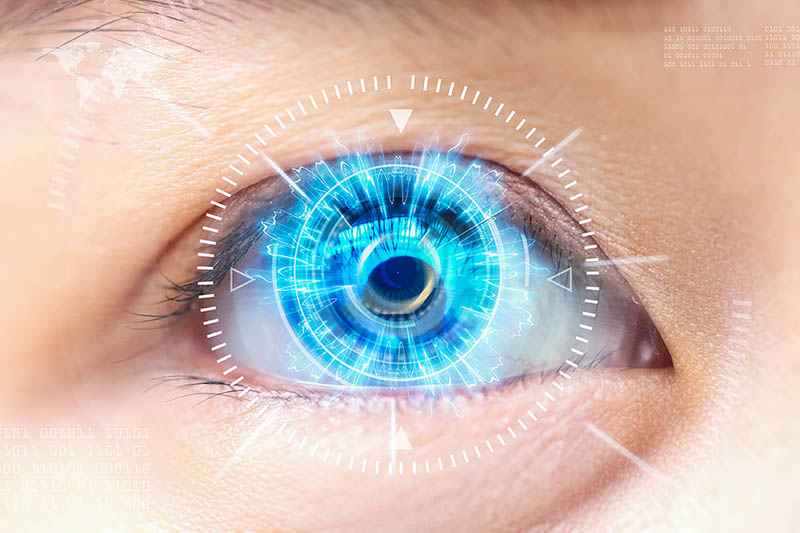The occurrence of dry eyes is not just an irritating condition. Dry eyes is a disease with scientifically proven symptoms and causes. What causes dry eyes? Are there self-care techniques I can do from home to treat my dry eyes? The onset of dry eye disease is triggered by inadequate tear gland production and moisture inconsistency. Its causes include from biological, environmental, genetic and behavioral sources
Certain DIY self-care treatment techniques are effective. Sometimes it is still necessary to see an optometrist or other certified eye-care professional to get the treatment you need. Nearly twenty million U.S. residents suffer from some level of dry eyes disease each year. Read ahead for a helpful guide on effective ways to treat dry eyes today.
General Symptoms of Dry Eyes
The symptoms of dry eyes are as numerous and varied as are the causes. Symptoms might or might not be indicative of more serious issues so it is always best to give them care and consideration, especially if they last for extended periods of time. Some symptoms of dry eyes overlap with other conditions as well. For example, perhaps the most common symptom of dry eyes is an itching sensation in one or both eyes. Itchy eyes are also a symptom of certain allergies and a result of touching your eyes with dirty fingers.
Sensitivity to light is another symptom of dry eyes. Light sensitivity is also caused by headaches and possible reactions to some medicines. Multiple symptoms more particularly specific to dry eyes do exits, however. One primary symptom involves feeling you have something in your eye, which results in burning, irritation or other pain. Dry eyes often turn red and make it challenging to insert contact lenses. Blurry vision and a feeling of fatigue in-and-around your eyes are also common symptoms of dry eyes.
Are watery eyes also a symptom of having dry eyes? When you suffer from dry eyes disease your body responds by attempting to flood your eyes with hydration. Overactive tear ducts and excessively watery eyes are both valid albeit possibly unexpected symptoms of dry eyes.

What Causes Dry Eyes
Dry eye disease has numerous scientifically verified causes. What causes dry eyes? The onset of dry eye disease is triggered by inadequate production in your tear glands and inconsistency in the creation of enough moisture to sooth your eyes. Biological, environmental, genetic and behavioral causes all wreak havoc on your tear film, causing it to dry in an unhealthy manner. All these umbrella types of causes also have some overlap with each other. It is therefore important to understand a few distinctions between them.
Aging is a primary biological cause of dry eyes disease. Decreased tear production, medically referred to as keratoconjunctivitis sicca, is a typical result of dry eyes caused by aging. Other biological causes of dry eyes include hormonal changes, Sjogren’s syndrome, vitamin A deficiency and thyroid disorders. Some genetic causes of dry eyes experience a crossover with biological causes, but also include autoimmune disease, posterior blepharitis, rheumatoid arthritis, diabetes and allergies.
Allergies are a significant environmental cause of dry eyes disease. While allergies are also considered genetic/biological causes, some allergic reactions only occur when you are in specific environments. Do you work in a dusty factory? Do you spend a lot of time outside around pollen? Are you allergic to particular medicines? Blocked meibomian glands cause decreased tear production and are often found in people with allergies causing rosacea and other allergy-based adverse skin reactions.
Other environmental causes of dry eyes include wind, smoke, dry air and dim or bright lighting. Behavioral causes of dry eyes include smoking, spending long hours in front of TV or computer screens and blinking excessively or not enough. Taking inadequate care of contact lenses, not washing your hands, excessive alcohol consumption and nerve damage from laser eye surgery are also causes of dry eyes disease.
Common Treatments
Professional optometrists, ophthalmologists and allergists perform and prescribe common medical-based treatments to relieve and/or cure the symptoms of dry eyes. Temporary punctal occlusion is a procedure involving the closure of your damaged punctum. A damaged punctum creates drainage issues. A punctual occlusion procedure places temporary dissolving plugs in your tear ducts. If the temporary procedure is effective your doctor might recommend inserting permanent plugs in your tear ducts as an attempt to completely cure your dry eyes disease.
Meibomian gland expression (MGE) treatments involve your doctor squeezing any rigid contents of your glands with medical forceps to reopen the flow of moisture to your eyes. Scleral contact lenses, which trap moisture in your eyes, are sometimes prescribed as experimental alternatives. Other common medical treatments for dry eyes include:
- Prescription steroidal eye drops.
- Prescription artificial tear drops/ointments.
- Lacrisertis.
- Lipiflow.
- Intense pulsed light (IPL).
Self-Care Techniques to Treat Dry Eyes
Certain DIY self-care treatment techniques are effective for treating your dry eyes without seeing a doctor. The cause(s) and severity of your condition is a factor in the efficacy of many self-care techniques. For example, if you have damaged corneas it might not be possible to treat your dry eyes using DIY techniques at home. What are some effective self-care techniques to treat dry eyes in 2021?
- Stop smoking/vaping.
- Purchase a humidifier.
- Use moist, warm compresses on your eyes once a day.
- Eat healthy fats & fish oils.
- Hydrate often.
- Take high-quality vitamin A, B12, & D supplements.
- Take frequent eye breaks from work.
- Position any TV/computer screens below eye level.
- Wear wraparound sunglasses to prevent wind/dry air from entering eyes.
Risks & Complications
Dry eyes disease can lead to other risks and complications. Permanent vision impairment is possible due to scratches, infections or other serious damage to your eyes caused by unnatural prolonged dryness. Many self-care techniques are effective but some are not. If your dry eyes are not healing naturally, see a medical professional immediately.